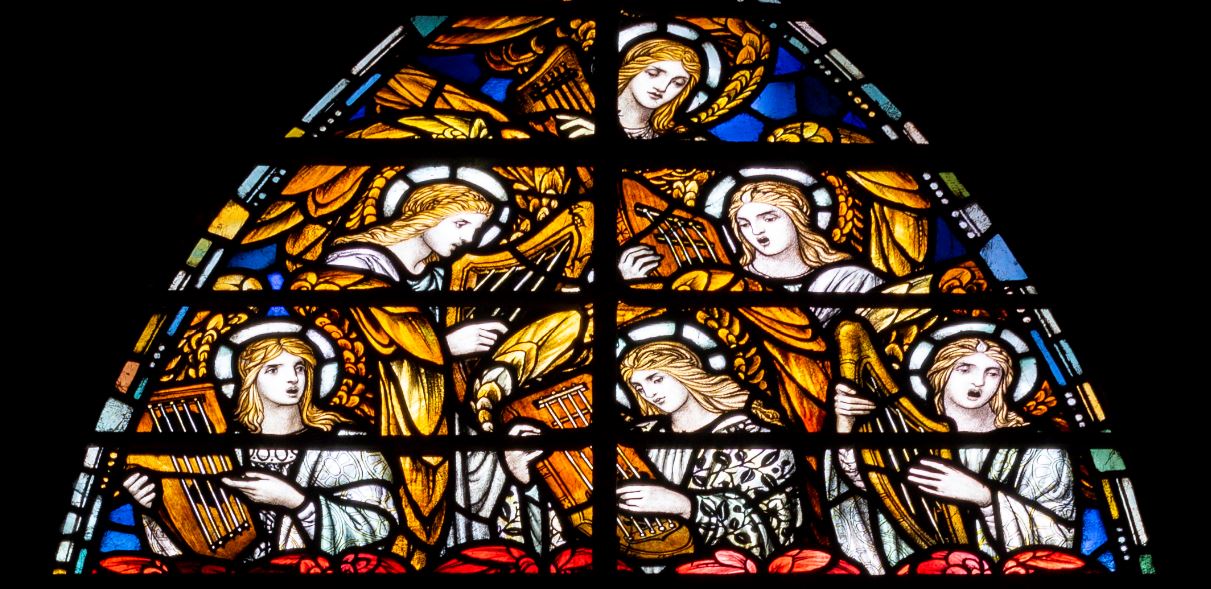25th January 2022
The Conversion of Paul

A sermon preached by Canon Nigel Davies, Vicar of the Close
Tuesday 25 January 2022, The Conversion of Paul
“Ananias answered, ‘Lord, I have heard from many about this
man, how much evil he has done to your saints in Jerusalem…’”
I am sure that there are very few Christians who are not familiar with the story of Paul’s, miraculous conversion, as he travelled to Damacus to arrest any followers of ‘The Way’ and to take them back bound, to Jerusalem, to answer to the High Priest. The encounter on the dusty road led to a change in name and a dramatic change in direction for him. From persecutor of ‘The Way’, he became the leading advocate for ‘The Way’, becoming responsible for church planting in the Roman dominated world. Not only that, but he has also shaped much of Christian Theology – for better or worse – through the letters he wrote to the Churches he set-up. He gave the church the words that have shaped the Holy Communion Service, which are embedded in the Eucharistic Prayers. He is a Christian colossus whose shadow is cast across the whole of Christian History, whose influence is alive and well within the church around the world to this day. He has even bequeathed the world at large the phrase, ‘a Damascus Road Experience’ which refers to an important point in someone’s life, where a great change, or reversal, of ideas or beliefs occurs.
I am confident that I have not told you anything that is new to you so far, but perhaps I might be about to, if our focus moves away from Paul to Ananias, whose role in the story is significant, even pivotal, and yet is perhaps often overlooked. Ananias had a key role to play as an instrument of God’s Grace and the means of imparting the Holy Spirit upon Saul, but before this happened, he was a sceptic, as the verse that I quote at the start of this sermon indicates. Scepticism is often expressed ahead of any great leap of faith, which a careful reading of the Bible will reveal. It may be expressed in word or deed as these examples from the Old and New Testament indicate: Sarah laughed when she was told she would have a child; Gideon was dubious about his chances of success until he was given three signs; Elijah was sceptical about God’s protection from Jezabel after the encounter with the prophets of Baal; Jonah was sceptical about God destroying Nineveh and it has to be said, was proved correct in his assertion and sulked!
In the New Testament we read of Zechariah’s refusal to believe the angel’s message about him becoming a father; Nathanael, when he was told by Philip that Jesus was the Messiah, questioned whether anything good could come from Galilee; Peter wasn’t exactly enthusiastic about casting his fishing nets again, after a fruitless night hard work, when they caught nothing; before the 5000 were satisfied, Andrew was dubious about whether five loves and two fishes could feed so many; and finally in this brief rummage through the pages of scripture, in Luke we are told that the disciples to a man didn’t believe the women’s story after they had returned from the empty tomb, the women’s ‘report seemed to them like idle talk and nonsense’; in Matthew we read that when Jesus appeared to his disciples some worship and others doubted; and finally there is Thomas, who perhaps should be the Patron Saint of Sceptics, who we find in John’s Gospel, refusing to believe what the other disciples told him.
So, sceptics abound and attend many of the significant events in salvation history. What then can we make of all this scepticism?
Let us return to the story and to Ananias, where we find that after his initial questioning response to God’s prompting, he did what he was asked to do. He went to find Saul, greeted him warmly and was the means by which Saul received his sight, the gift of the Holy Spirit, and a change of name!
In the story of the Conversion of Paul we learn from Ananias, that there is no harm to express doubt, to be sceptical, to ask questions, because this is often how our faith grows – we also learn from Ananias that there is a need to act upon God’s prompting.
We may be lucky to have our Damacus Road Experience, or it is more likely something rather less dramatic like a Christian friend becoming an Ananias figure to our Saul, whose words of encouragement, cause the scales to fall from our eyes so that we can see things clearly once more. Might that be something God is prompting us to do, become Ananias to one of our friends or acquaintances?




